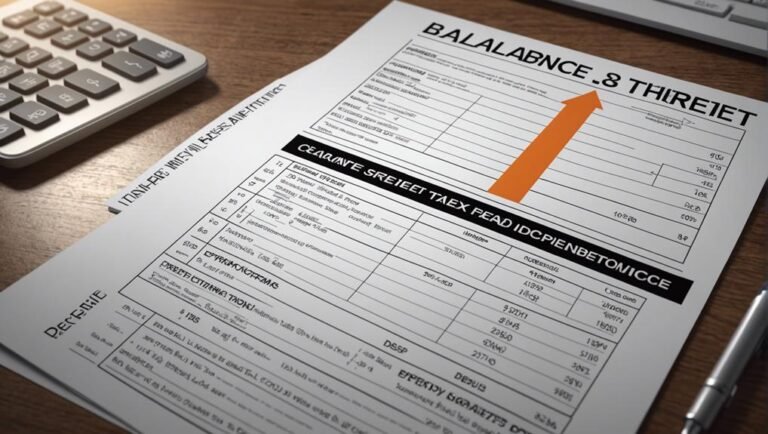What Is Adjudication? Definition, How It Works, Types, and Example
Adjudication, a fundamental legal process ensuring equitable dispute resolution, involves the issuance of binding judgments based on evidence and established procedures. From contractual disagreements to administrative matters, adjudication plays a pivotal role in various contexts. Understanding the nuances of this process, including its different types and real-world applications, is essential for all involved in the legal domain. As we explore the intricacies of adjudication, we reveal a world where impartiality and fairness stand as the cornerstones of justice, shaping outcomes and decisions with profound implications.
Key Takeaways
- Adjudication involves issuing legal rulings to ensure fairness and impartiality in resolving disputes.
- The process includes appointing an adjudicator, presenting evidence, and following formal rules.
- Types of adjudication include judicial, administrative, and statutory adjudication.
- Examples include judges resolving contractual disputes and adjudicators overseeing negotiations.
- Adjudication results in a legally binding judgment based on evidence presented during the process.
Definition of Adjudication
Adjudication can be defined as the formal process in which a legal ruling or judgment is issued, typically marking the conclusion of a legal case or claim through court proceedings. This process offers several benefits, including providing a structured framework for resolving disputes, ensuring fairness and impartiality in decision-making, and establishing a final and legally binding outcome.
By following established rules of evidence and procedure, the adjudication process allows parties to present their arguments and evidence, enabling the adjudicator to make an informed judgment. Additionally, adjudication promotes efficiency in dispute resolution by offering a quicker and more cost-effective alternative to traditional litigation.
How Adjudication Works
How does the adjudication process function in practice to resolve legal disputes efficiently and effectively? The adjudication process involves several key steps that help in reaching a legal resolution:
- Initiation: The process begins when one party gives notice establishing the facts of the dispute.
- Adjudicator Appointment: An adjudicator is appointed to review the case and make a final ruling.
- Hearing: Parties present their arguments and evidence at a formal hearing.
- Evidence and Procedure: Formal rules of evidence and procedure govern the process to guarantee fairness.
- Decision: The adjudicator issues a legally binding judgment based on the presented evidence.
This structured approach guarantees a systematic and fair resolution of legal disputes through the adjudication process.
Types of Adjudication
Differentiating the various categories of adjudication helps in understanding the nuanced applications and implications within legal processes. When analyzing adjudication types, it is essential to address common misconceptions surrounding the different categories. The table below illustrates key distinctions between types of adjudication to provide clarity on their unique characteristics.
| Adjudication Type | Description |
|---|---|
| Judicial Adjudication | Decisions made by government-appointed judges considering public welfare and government interests. |
| Administrative Adjudication | Involves disputes between private parties and public officials or bodies, often requiring notice to all interested parties. |
| Statutory Adjudication | Resolution of disputes following specific statutory procedures, commonly used in construction and contractual disagreements. |
Adjudication Examples
An examination of real-world scenarios can shed light on the practical application and impact of adjudication in diverse legal contexts.
- Courtroom scenarios: Judges issuing legal rulings in cases involving complex contractual disputes.
- Settlement agreements: Adjudicators overseeing negotiations and approving settlements between parties to resolve conflicts.
- Legal rulings: Adjudication determining liability in insurance claims disputes, ensuring fair compensation for policyholders.
- Insurance claims: Adjudicators evaluating evidence to make final decisions on the validity of insurance claims, protecting the rights of both insurers and claimants.
- Legal disputes: Adjudication playing an important role in resolving intricate legal disputes, providing a formal and structured approach to conflict resolution.
Adjudication Process Explained
The adjudication process unfolds within a framework of formal rules and procedures, guiding parties towards a legally binding resolution of their disputes. This process can be complex, with significant legal implications and challenges. Here is a table illustrating key aspects of the adjudication process:
| Adjudication Complexities | Legal Implications | Adjudication Challenges |
|---|---|---|
| Formal rules of evidence and procedure | Results in legally binding judgment | Ensuring fair representation for all parties |
| Initiating party gives notice establishing facts | Determines liability in various industries | Managing diverse perspectives and interests |
| Adjudicator appointed to make final ruling | Used to settle disputes between private parties | Addressing intricate legal arguments |
Case studies can provide valuable insights into how these factors interact within the adjudication process.
Conclusion
To sum up, adjudication is a legal process essential for resolving disputes fairly and impartially. By following established rules of evidence and procedure, adjudicators are able to issue final and legally binding judgments.
The different types of adjudication, such as judicial, administrative, and statutory, serve specific purposes in resolving various disputes.
Just as a skilled artist carefully selects the right brushstrokes to create a masterpiece, adjudicators meticulously analyze evidence and arguments to reach a final decision.







